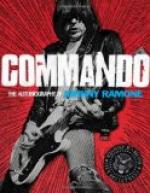The condition of the people in Zoutpansberg and in Waterberg, where the enemy had been, was not very cheerful. Everyone complained that there was no sugar to be had, that the meal was getting low, and that soon there would be no clothes. Pietersburg was exhausted by the commandos, and the courage of the inhabitants was nearly at an ebb. They would not yet make the sacrifice that would part them from their families. The enemy had not yet driven them to despair by the destruction of their fields and goods.
Every sensible person knew that the Republics would lose in the long-run in a guerilla war unless something unforeseen happened. At the time that we fled from Pretoria my mother said she would have hope as long as her ‘gorillas’ remained in the veld. Even if we clung to a straw, the possibility always remained that things might take a favourable turn as long as a fair number of burghers remained in the veld.
The burghers from the different districts now in Waterberg were earnest and full of courage. Noticeable changes for the better had been made. Beyers, a man in whom the men had the utmost faith, was made Assistant-Commandant-General, and was to lead a commando of 1,500 horsemen from Waterberg, Zoutpansberg, Krugersdorp, etc., to the Hoogeveld. The discipline was much stricter. Cooper and Fanie Grobler, who had been accused of high treason, promised to keep a sharper look-out for spies and traitors. And we still always hoped for an eventual rebellion in Cape Colony. That hope was our life-buoy on which we kept our eyes fixed. We felt that there our safety lay, and the enthusiasm of the commando was heightened by the desire to celebrate Paardekraal Day in Krugersdorp on December 15. As a sailor longs for the sea, so we longed for a meeting with the khakies when we left for the Magalies Mountains in the beginning of December. Our commando was light and mobile, with provisions for a short time only. Such heavy cannon as the Long Toms were of no use to us now. Hence-forward we were to live on the produce of the surrounding country, as there was no basis from which we were to operate. Besides this, the khakies very kindly made over some of their provisions, arms, and ammunition to us in a skirmish or battle, so that afterwards we had more Lee-Metfords than Mausers in our possession.
At Krokodil River I had the privilege of seeing how a honey-bird takes a human being to a bees’ nest. As we were lying under a tree, a honey-bird settled close to us. Corporal Botman followed it as it flew chirping from tree to tree, and called to it that he was following, until the bird stopped at the hive. The grateful finder always rewards the bird with a piece of honeycomb that he puts aside for it. But I have never been able to discover whether the bird or the insects eat the honey. I know that the ‘bug-birds,’ that are always seen on or near cattle, do not feed on the bugs with which the cattle are covered, but on the locusts that fly about the herd. Last week, when our guards took us for a walk outside the fort, I noticed that a kind of sparrow in India has the same trick of catching the locusts that are driven on ahead by the cattle.




